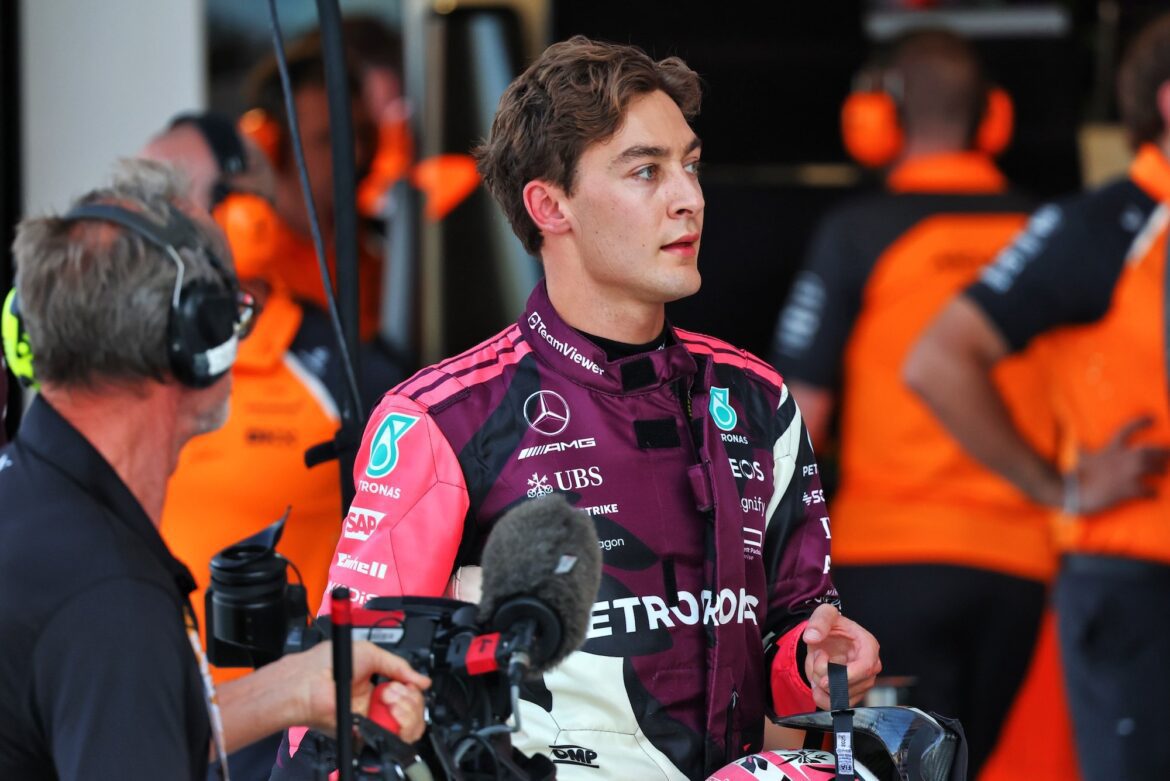Esteban Ocon recently expressed his views on a controversial maneuver made by George Russell during the Monaco Grand Prix, referring to it as “dirty.” During this high-stakes race, which takes place on the narrow and winding streets of Monte Carlo, Russell found himself in a challenging position as he was stuck behind two Williams drivers, Carlos Sainz and Alex Albon. In a bid to overtake Albon, Russell opted to cut the chicane, later stating over the radio that he was prepared to accept any penalties that might come from the incident. However, this tactic backfired; he received a drive-through penalty, resulting in a 20-second delay. Ultimately, Russell finished outside the points despite starting from 14th position.
Despite not scoring any points in this race, Russell has managed to secure the fourth spot in the championship standings, boasting 99 points—20 points ahead of Ferrari’s Charles Leclerc. When asked about Russell’s move, Ocon expressed his surprise regarding the stewards’ decision to penalize Russell, saying: “I think nobody expected that ruling. It makes sense, but it was somewhat dirty, all of that. If you think about it, it was like: ‘Oh, it’s fine, I cut the track, see you later.’”
Ocon, who drives for Haas, acknowledged that he understood the reasoning behind Russell’s actions but criticized the nature of racing that unfolded in Monaco. He remarked, “That wasn’t right. It also opens the door for team orders, which honestly are not very clean. It takes away from the essence of sportsmanship. Yes, team orders have always existed in F1, but that’s not what we want to witness.” Ocon went on to say that the level of strategy being employed had become excessive in recent times.
In his analysis, Ocon suggested that the FIA should monitor data closely to prevent such maneuvers from becoming commonplace in the future. “Obviously, we have data for everything nowadays. You can see when someone starts lifting off in the corners and suddenly posts a lap three seconds faster than the previous one. It’s essential to analyze the data—although presenting this as evidence would be challenging for the stewards and could spark disputes among teams. ‘Oh, but he blocked me here, and I have the proof.’ That would be a hassle.”
He continued, “But yes, I believe we need to ensure that this doesn’t become the norm. I know some strategists are really fond of this approach. I’ve worked with a few like that, and I’ve always been against it. Even in my own team, there was a scenario where Ollie should have done that for me, and I said, ‘I don’t want that to happen.’”
Ocon concluded his thoughts by emphasizing the importance of maintaining the integrity of racing, stating, “Yes, we need to perform well in the race, but if you’re Ollie in that moment—he already had a tough weekend—he also wants to race. It’s not something nice to do, neither for the others nor for the second car in the race.”
The Monaco Grand Prix is often regarded as one of the most prestigious events in the Formula 1 calendar, and it typically features tight racing and strategic decision-making. However, the incident involving Russell has ignited discussions about racing ethics and the strategies employed by teams to gain an advantage. The narrow streets of Monte Carlo can lead to unique challenges, and drivers must navigate them while balancing aggression and strategy.
In the context of Formula 1, team orders have long been a topic of debate. While they can be a legitimate strategy to maximize points for the team, the way they are executed can sometimes lead to controversies. Ocon’s comments reflect a growing concern among drivers about the implications of such tactics on the sport’s integrity and the spirit of competition.
Ocon’s perspective underscores the need for a balance between strategy and fair play, particularly in a sport where precision and performance are paramount. The tension between individual driver ambitions and team strategies can create a complex dynamic, and incidents like the one involving Russell serve as a reminder of the fine line that exists in competitive racing.
In conclusion, the conversation surrounding the Monaco Grand Prix incident highlights the ongoing evolution of racing strategies in Formula 1. As teams continue to push the boundaries of what is acceptable on the track, the role of governing bodies like the FIA becomes increasingly important in ensuring that the sport remains fair and competitive. The voices of drivers like Esteban Ocon add valuable insights into the challenges and ethical considerations that come into play in the fast-paced world of Formula 1 racing.
